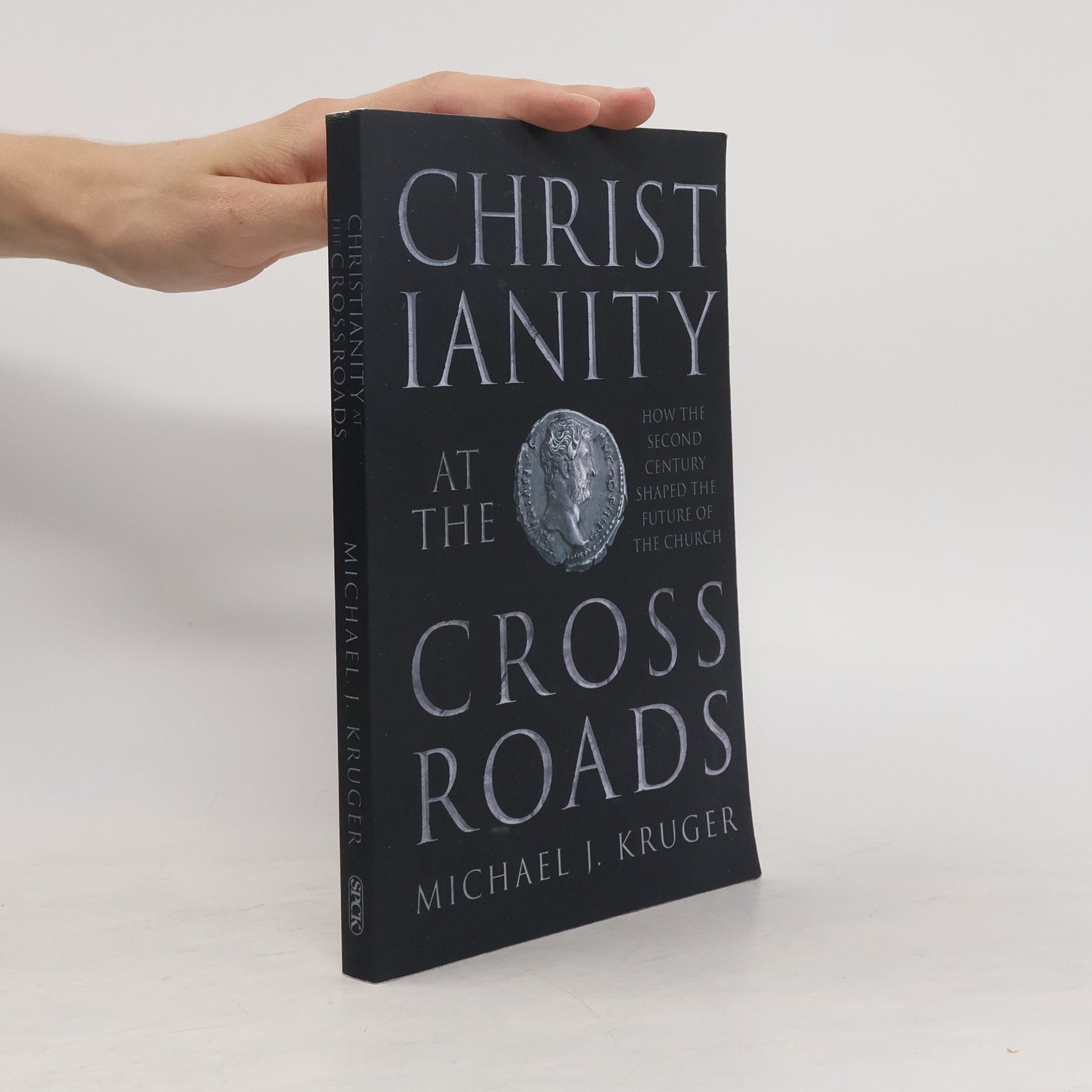Spiritual abusers are Christian bullies. And high profile cases of pastoral bullying are only a small portion of this widespread problem. Victims suffer in silence, not knowing where to turn. We need gentle shepherds now more than ever, and in Bully Pulpit, Michael J. Kruger reveals how to spot spiritual abuse and how to handle it in the church.
Michael Krüger Livres
Michael J. Kruger est un érudit distingué dans le domaine du christianisme primitif. Avec une profonde compréhension des écrits chrétiens primitifs, son travail explore les thèmes clés et les styles littéraires de l'époque. Ses analyses offrent aux lecteurs de nouvelles perspectives sur la formation de la théologie et de la pratique chrétiennes primitives.






Surviving Religion 101
- 272pages
- 10 heures de lecture
Writing in the form of a letter to his college-age daughter, Michael Kruger's Surviving Religion 101 takes a topical approach to examining some of the toughest questions Christian students encounter at secular universities.
Now in paperback, a comic and moving collection of stories of grumpy old men who start to find unexpected connections with the world. The thirteen stories of Michael Krüger's The God behind the Window capture the poignancy and cynicism of late life through tales of misanthropic old men full of the mixture of wisdom and melancholy that so often accompanies old age. In Krüger's stories, world-weary characters seek--and only temporarily find--solace in nature and culture, rendering their search for a better life simultaneously comedic and heart wrenching. From a solitary hiker in the Swiss Alps to the book's eponymous shut-in, these aging malcontents are continually surprised by the unexpected interventions of a world that has come to seem predictable. Krüger captures this stage in life masterfully, contrasting the deeply personal emotions of affection, melancholy, and longing with an indifferent world. The resulting stories are lyrical, philosophical, and tender despite their cynicism.
This introductory survey looks at how Christianity took root in the second century, how it battled to stay true to the vision of Christ's apostles, and how it developed in ways that would shape both the Church and Western culture over the next two thousand years.
Our twice-yearly daylight savings holiday, in which we faithfully, collectively adjust our clocks, is purely human tampering with the calendar. Yet, it is a practice that is embedded in nature's principles, even as we exact more sunlight for ourselves in an over-organized, technological world. Mirroring this dichotomy, Michael Krüger brings us The Seasonal Time Change, a collection of poems where an exacting eye is cast on nature. The poet's perspective is observant, stringent, and very human, bringing both intellect and emotion to the page. Translated by Joseph Given, the verses are in turn scrutinizing, wistful of the brutality of nature, and rejoicing in the simple wonder of life. Bearing witness to Krüger's interactions with renowned poets and artists through his time as director of Hanser publishing house, proximity and relationships are ongoing themes in this volume. Together, the poems remind us of our own mortality and of the finiteness of nature, but also our need for celebration even--perhaps especially--in times of darkness.
The New Testament has been the focus of Kruger's research and writing for many years. It is an exciting field of study that probes into questions that have long fascinated both scholars and laymen alike, namely when and how these 27 books came to be regarded as a new scriptural deposit. But, the story of the New Testament canon is bigger than just the 'when' and the 'how'. It is also, and perhaps most fundamentally, about the 'why'. Why did Christians have a cannon at all? Does the canon exist because of some later decision or action of the second- or third-century church? Or did it arise more naturally from within the Christian faith itself? These are the questions this book is designed to address.
A personal perspective on the challenges of living through a global pandemic. When the COVID-19 pandemic hit, Michael Krüger was suffering from severe shingles and just beginning treatment for leukemia. Because his immune system was so compromised that even a cough would have knocked him flat, he had to stay away from people. He retired to a wooden house near Lake Starnberg in Germany, and from there he dispatched his poetic messages. Krüger's meditations from quarantine were printed for many months in the magazine of the Süddeutsche Zeitung and met with an enthusiastic response. In a Cabin, in the Woods collects fifty tableaux of nature, images of the immediate surroundings of a restricted life that also look beyond the horizon. At the same time, these poems look inwards to explore transience, illness, and death. Humorous and melancholy, these are studies of the world made with the tiniest compass--meditations on nature and the nature of self that touch us all.
»Wer so dichtet, sitzt nicht mit den Wörterbüchern auf dem Schoß am Schreibtisch«, bemerkte Iris Radisch zur Lyrik Michael Krügers einmal in der Zeit. Für ihn findet die Welt auch unter freiem Himmel statt:Die Verse in Krügers neuem Gedichtband begeben sich ins Offene genauso wie unter die Menschen; auf Reisen, in Gesprächen scheint die Essenz des Erfahrenen auf, und den heiteren Szenen, schlaflosen Momenten, ruhigen Beobachtungen, melancholischen Einsichten, die die Gedichte spiegeln, fehlt eines nie: die Weltzugewandtheit. Krügers Lyrik läßt die Dinge sprechen, ohne dem Leser Einsichten aufzudrängen.
Meteorologie des Herzens
Über meinen Großvater, Zbigniew Herbert, Petrarca und mich
- 141pages
- 5 heures de lecture
"Michael Krüger is ein Freund und Orchestrator naturbelassener Einsamkeit. Zugleich hat er stets die geistige Weite und das Sprachgewirr der internationalen Literatur unserer Zeit gesucht. Hier - in einem Gedicht, einem Gespräch und in zwei Erinnerungen - lässt sich nachlesen, wie Behutsamkeit und Zurückhaltung, Anspruch und Selbstbewusstsein ein Leben für die Literatur geprägt haben"--Page 4 of cover.
Michael Krüger und Quint Buchholz lassen „den Himmel dichten“: Der Schriftsteller folgt dem Mond in seinen Texten wie einem alten Bekannten, der die wachen Stunden der Nacht besser kennt als jeder andere. Der Illustrator taucht seine Bilder dazu in ein Mondlicht, das von den schönsten und tiefsten Geheimnissen der Natur und der Menschen erzählt. Eindringliche Texte und großartige Bilder verbinden sich so zu einem „himmlischen“ Ganzen.


